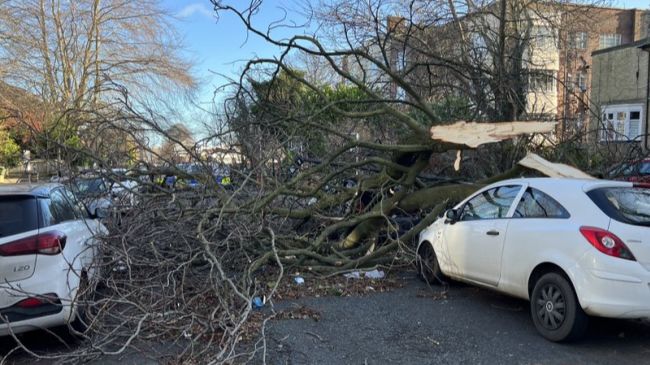Storms don't occur often in England. But when they do, they cause countless issues for both individuals and businesses.
In this article, Dispute Resolution Partner Michelle Hayter discusses your liability for storm damage to both your property and neighbouring property.
And, Commercial Associate Sarah Sillar looks at business disruption as a result of storms, and how businesses can protect themselves against legal action.
Can I be liable for damage to a neighbours property in a storm?
When a tree is uprooted in a storm and damages your neighbour’s property it is unlikely you will be held liable unless your neighbour can prove that you have been negligent.
This type of event is commonly known as an ‘Act of God’ in legal and insurance terms. However, negligence may be proven if your neighbour had made you aware of a safety hazard concerning your tree and you had done nothing to resolve it.
Am I liable if a tree damages a neighbours property?
Another question that arises in these situations is who owns the tree in question.
Ownership of a tree is determined by the placement of the trunk in relation to the boundary line. Generally speaking, whichever side of the boundary line the trunk rests on, that person is the legal owner.
If the trunk rests on the boundary line both neighbours may have equal ownership and equal liability.
What can I do if a neighbour's tree damages my property in a storm?
If your neighbour’s tree falls on your house, your own house and property insurance should cover you, similarly if your tree is blown onto your neighbour’s property their home insurance should cover him.
The repair of a storm damaged common fence would be the responsibility of all the parties who share the common fence.
Who pays for storm damage repair to business property?
Dispute Resolution solicitor Michelle Hayter says,”If you have business premises affected by storm damage check your lease agreement to see who is responsible for the cost of repairs.
Storm damage is a standard risk in most commercial building insurance policies and therefore would likely be covered by the insurance company. Building insurance is generally obtained by the Landlord and it is usually the Landlord who would make the claim.”
What if my business is disrupted by a storm?
Storms can cause huge disruption to businesses, causing supplier issues and ultimately customer dissatisfaction.
How to manage business disruption
If customers are let down and don't receive your product or service, due to unforeseen circumstances such as a storm, you may be wondering what your obligations are.
Well, the answer lies in your contractual terms and a very important phrase called ‘Force Majeure’.
What is Force Majeure?
Force Majeure has no definition in English law and is a clause commonly found in commercial agreements.
It states that one or both parties will not be liable for not meeting their obligations when an extraordinary event occurs.
It’s a popular misconception that parties to a contract are automatically relieved from their obligations when some kind of disaster occurs.
This clause is effectively a ‘get off the hook’ clause for you and your suppliers, if the reason for your failure to perform contractual obligations was beyond your control.
How can businesses rely on Force Majeure?
Commercial Solicitor, Sarah Sillar says,"This clause is normally discussed by the parties when a contract is being negotiated and must be correctly worded to be effective.
If there is no Force Majeure clause in your contract you may be open to a claim for breach of contract from your supplier."
If you already have this clause in your contract you should check to see what situations are covered and what the consequences are – does the clause require the affected party to give immediate notice of the event or does it merely suspend obligations?
Does it allow termination of the contract if the Force Majeure event is not resolved within a specified time?
Bright & Experienced Solicitors
If you have any questions following this article, whether it's regarding residential or commercial liability for both storm damage and disruption, please get in touch with us today.
We'd be happy to discuss your circumstances with you and provide some advice
We offer a free initial chat for all new clients.
Simply call us on 01202 499255 or fill out the form at the top of this page.





Comments